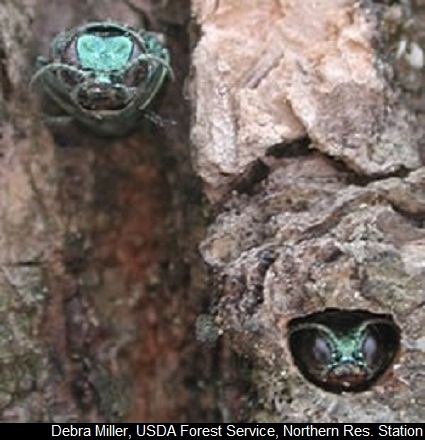National Invasive Species Awareness Week
February 26, 2019 2:47 pm

National Invasive Species Awareness Week kicked off this week. A series of events and webinars offered throughout the week aim to raise awareness and identify solutions to invasive species issues at local, state, tribal, regional, international and national scales.
Invasive species are plants, insects, pathogens or other animals intentionally or accidentally introduced into a region where they did not evolve. Their introduction causes, or is likely to cause, economic or environmental harm, or harm to human health.
A fair number of invasive species are found in Virginia, many of which negatively affect the health of our forests. These pests often do not have natural controls in place to regulate their population, so eradication or containment can be challenging and very expensive. Invasive insects like the emerald ash borer continue to cause tree mortality throughout the state, and invasive plants often out-compete native flora and reduce diversity.
The Virginia Department of Forestry’s Forest Health Program detects, monitors and evaluates invasive species on state and private land. Knowing which species are present in an area and understanding their potential impact will enable landowners to make decisions regarding treatment and management. There are simple things we can all do to reduce the risk of future invasive species introductions.
Here are seven ways you can help:
- Learn about invasive species, especially those found in your region. Virginia Department of Forestry staff can help.
- Clean hiking boots, waders, boats and trailers, off-road vehicles and other gear to stop invasive species from hitching a ride to a new location. Learn more.
- Avoid dumping aquariums or live bait into waterways. Learn more.
- Don’t move firewood – instead, buy it where you’ll burn it, or gather on site when permitted. Learn more.
- Plant only non-invasive plants in your garden, and remove any known invaders.
- Use forage, hay, mulch and soil that are certified as “weed free.”
- Volunteer to help remove invasive species from public lands and natural areas.
Tags: Firewood, Invasive Species
Category: Forest Health